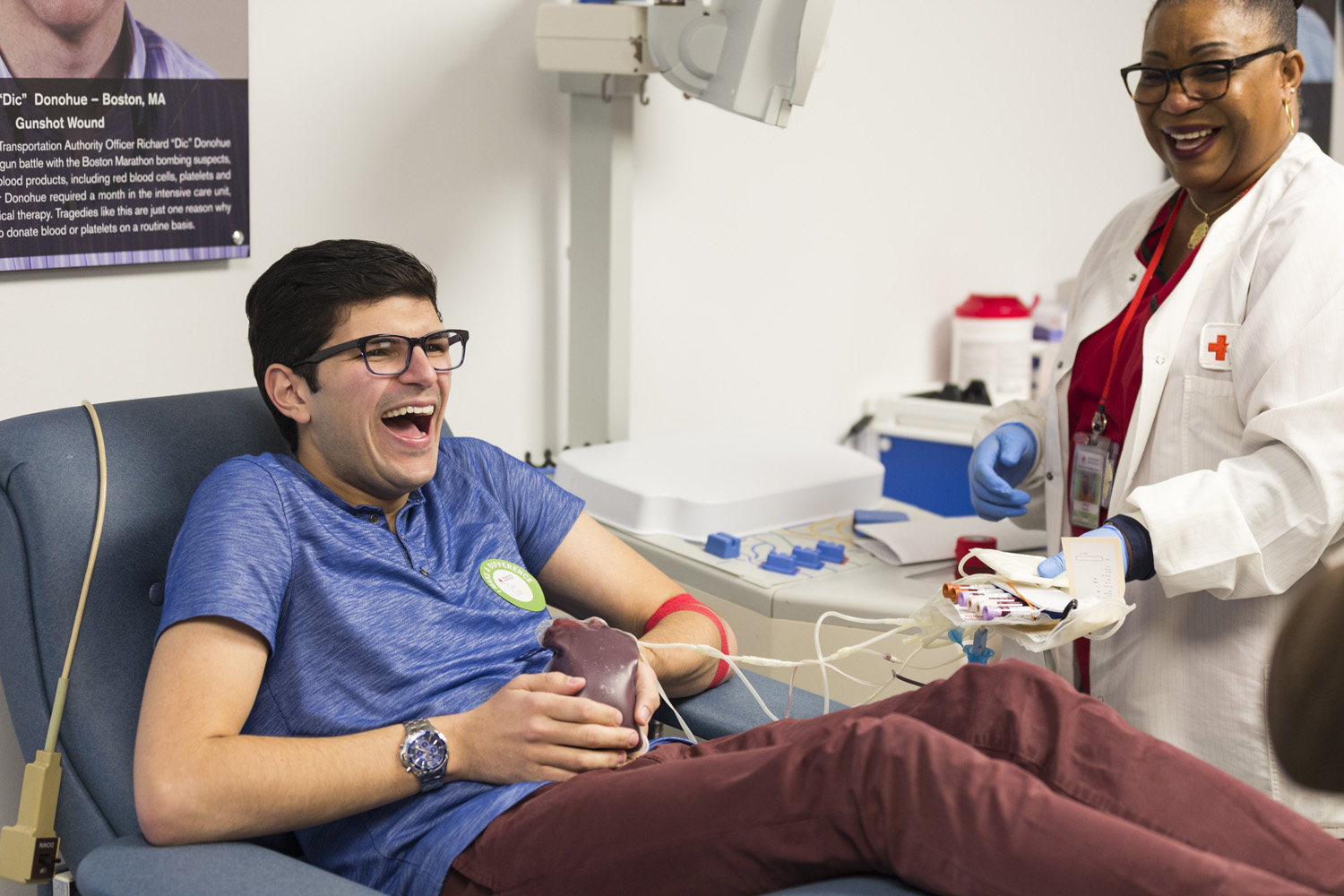Advertisement
Abstinence, HIV And Blood Donation
ResumeA 21 year-old gay man abstains from sex for a year so he can donate blood. That’s the law, but is that what it takes to keep the blood supply safe? We’ll look at science, fear and blood.

In the days after the terrible attack on the gay nightclub Pulse in Orlando, gay men flocked to give blood to help the many wounded. Most were turned away. U.S. law requires gay men to be abstinent – no sex – for a year before blood donation. It’s a policy with roots in the HIV-AIDS crisis. Critics say new testing has made it outdated. This hour On Point, science, fear, blood and the donations of gay men. Plus, we’ll look at the future of drug prices and manufacturing under Donald Trump. — Tom Ashbrook
Guests
Jay Franzone, communications director for the National Gay Blood Drive. Recently donated blood after a year of abstinence. (@JayFranzone)
Dominic Holden, national LGBT reporter for BuzzFeed News. (@dominicholden)
Brian Custer, associate director of the Blood Systems Research Institute, a non-profit which conducts medical research to improve blood safety and patient care.
From Tom’s Reading List
New York Times: I Abstained From Sex For A Year To Donate Blood -- "It shouldn’t be a big deal that I gave blood this week, but it is. To do it, I had to give up all forms of sex for a year. The reason: I’m gay. With what we know today about the disease, it’s a stupid reason."
BuzzFeed News: This Gay Man Isn’t Having Sex For A Year So He Can Donate Blood -- "Realistically, gay men, just like straight folks, tend to have sex more than once every 12 months — Franzone argued that the guidelines amount to a de facto ban for gay men. By jumping through the federal government’s hoops — a year without sex — he hopes to demonstrate that the policy is not just unworkable but discriminatory."
TIME: This National Blood Drive Is Fighting the FDA Ban on Gay Donors — "The National Gay Blood Drive began when gay rights activist Ryan James Yezak felt humiliated at work when he was one of the only people who could not donate blood to tornado victims three years ago. 'It completely alienated me from the rest of my coworkers, and I felt like a different species,' says Yeznak, who has created a documentary on the topic. 'We have enough [gay and bisexual men] to contribute to the offset of blood shortages.'"
What It Means To Give Up Sex In Order To Donate Blood
"It's a big statement, and a big step — I took it to send a message. In part to donors who regularly give blood - I appreciate their sacrifice. But I also took it to say to the FDA that this policy is discriminatory, so to engage in conversation. But also in part to young gay and bisexual men who are facing this policy for the first time and are being told they are lesser, or there's something wrong with them...It's a de facto lifetime ban. It's not realistic unless you really stay abstinent for a year." — Jay Franzone
Why The One-Year Ban On Sexually Active Gay Men Donating Blood Still Exists
"We have two tests used to detect HIV that help us to assure that donated units don't run the risk of transmitting HIV to a transfusion recipient. Tests are not perfect — a window period of ten day to two week period after somebody might be exposed and become infected with HIV and we might not be able to detect that. There's always been a discussion of the safety surrounding blood donations — we're committed to safety primarily for the recipients of transfusions. It's a challenging situation. The process of making policy change to something shorter than say a year deferral for men who have sex with men takes a very long time. I can't defend the regulatory policy, but there is a logic that links to other ways that we handle other deferrals for exposures that we do. HIV biology isn't linked to a one-year interval. The year is somewhat of an arbitrary date, and we know that."-- Brian Custer
This program aired on January 12, 2017.